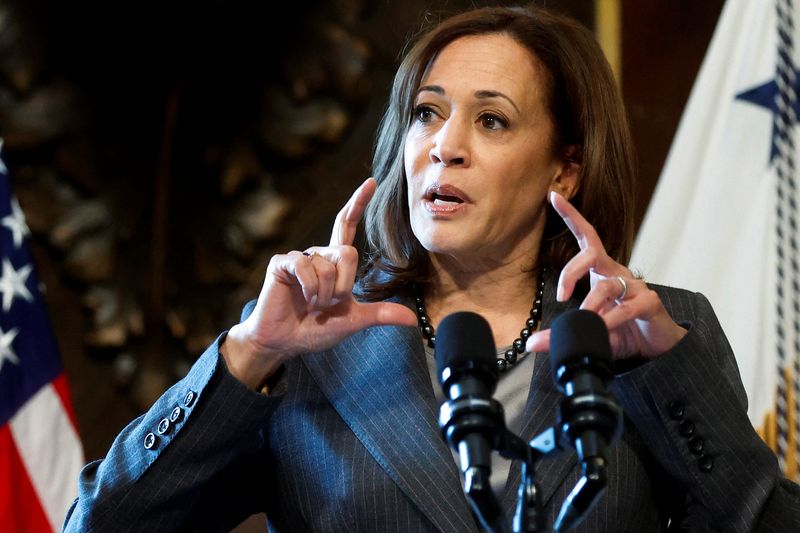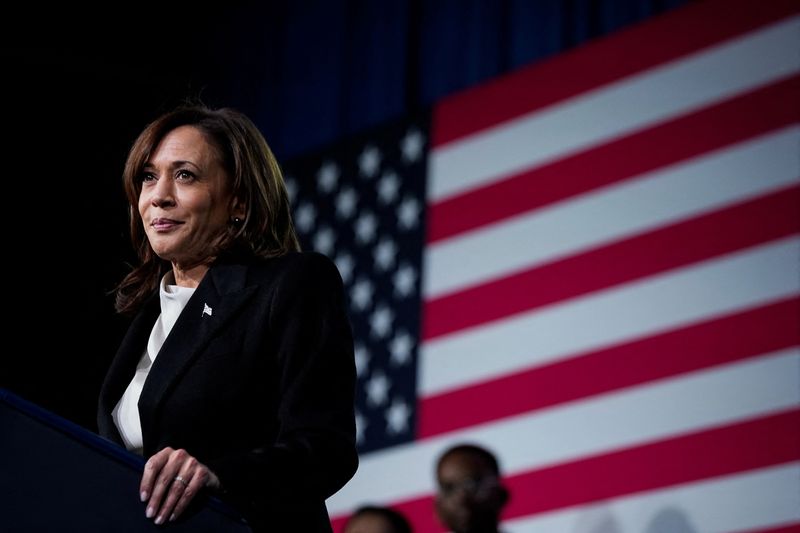By Ted Hesson
WASHINGTON (Reuters) - Private companies have committed to invest $4.2 billion in northern Central America as part of an effort by U.S. Vice President Kamala Harris to reduce migration by targeting economic development, the White House said on Monday.
The latest figures, up from $3.2 billion announced in June 2022, stem from pledges by 47 companies and organizations, including the retailer Target (NYSE:TGT) and the Columbia Sportswear (NASDAQ:COLM) Company.
Among the new announcements on Monday, Target committed to increase its spending in El Salvador, Guatemala and Honduras by $300 million this year while Columbia said it would purchase $200 million in products in the region, creating more than 6,900 jobs over five years.
U.S. President Joe Biden, who delivers the annual State of the Union address on Tuesday, named Harris in March 2021 to lead efforts to reduce migration at the U.S.-Mexico border as crossings began to spike at the beginning of his administration, eventually reaching record highs.
Harris has focused her efforts on addressing the factors that led migrants to leave the three countries, known as the Northern Triangle, including a lack of economic opportunity.
In her remarks on Monday, Harris said migrants come to the United States to flee harm or because they cannot meet basic economic needs.
"People generally do not want to leave home," she said.
Before a meeting with U.S. officials and private sector representatives, Harris announced a new phase of the effort called Central America Forward, which will focus on broader economic development, corruption and labor rights.
Corruption and governance concerns in the three nations have limited the effectiveness of the Harris push, leading to the cancellation or suspension of projects likely worth millions of dollars.

Arrivals from northern Central America have steadily declined following a sharp rise in 2021 after Biden took office.
During that time, hundreds of thousands of migrants from the region have been expelled back to Mexico without the chance to seek U.S. asylum under a COVID-19-related order known as Title 42.
